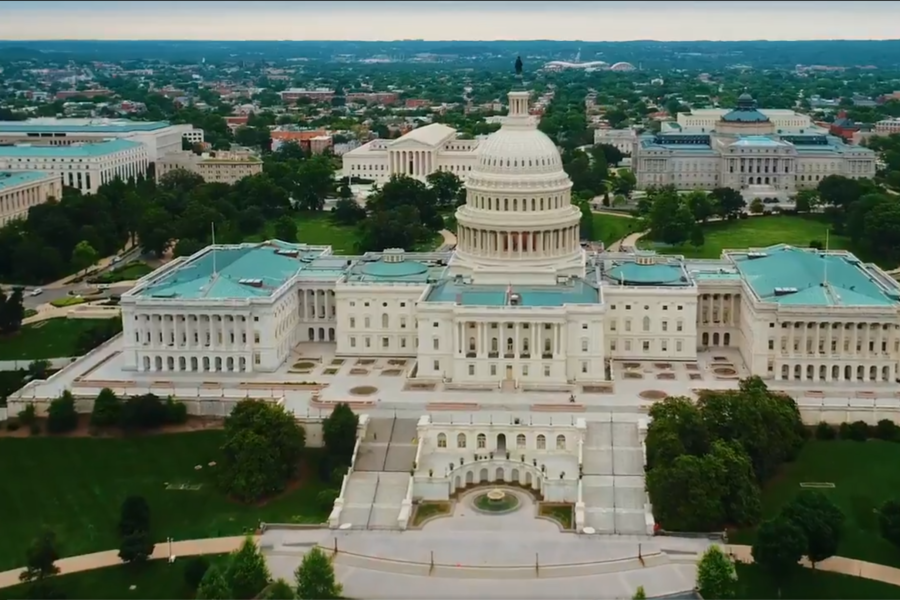The head of the House Armed Services Committee calls himself an optimist. This year, he also has to be a realist.
Rep. Adam Smith (D-Wash.), tried to pack Democratic priorities into his committee’s version of the fiscal 2021 defense policy bill—though not enough, according to some progressives and policy advocates—and ultimately came up with legislation that will spark fewer fireworks than last year. He argues it’s not because Democrats backed down, but because many of the hot-button issues either didn’t come up or weren’t worth relitigating.
“By and large, those have been resolved,” Smith told reporters during a June 30 Defense Writers Group event. “Not all of them have been resolved to my satisfaction, but nothing has changed in terms of the control of the Senate, the control of the White House, control of the House. We fought those battles, we see the outcome, and so there is not the necessity to fight them again, in many instances.”
Capitol Hill in 2019 fought over how robustly to fund the military and related agencies, after the topline figure swung from $700 billion to $750 billion over the course of a few months. National security ultimately received $738 billion for fiscal 2020.
Some Republicans may think it’s still too low and some Democrats too high, but settling on the overall spending number isn’t a problem this time. Congress agreed on a topline of about $741 billion for fiscal 2021 in a funding deal last year.
“I do understand and respect that progressives want to see that number cut,” Smith said. “That’s a conversation we will have in the future, but for this year, that’s the number we’re marking to.”
HASC’s 2020 legislation tried to shrink nuclear weapons funding, lower spending on fighter jets, block the Trump administration from spending Pentagon dollars on a wall along the southern U.S. border, and more. Those disagreements have largely dissipated in the name of cooperation.
“We had differences of opinion on the low-yield nuclear weapon. That battle has been lost, and that system has gone forward,” Smith said. “There is no money for the wall in FY ’21, so that fight did not present itself. So it’s not so much a conscious choice to say, ah, let’s just not fight it. We fought it, we resolved most of those issues. And so I think there’s a greater possibility of getting a bipartisan bill.”
Still, certain issues, like how to deal with the family of industrial “forever chemicals” known as PFAS, are expected to remain sticking points. Smith did not comment on the internal deliberations over how the committee ultimately decided to allocate the $741 billion.
Continuing the nearly six-decade-long tradition of passing an annual National Defense Authorization Act is more important than sticking to partisan wish lists, he suggested, particularly in an era when the executive branch has an outsized influence over the federal government.
“I want to find a way to make sure that Congress continues to express its opinion by passing this bill every year,” Smith said.
Ranking Member Rep. Mac Thornberry (R-Texas) recently noted that the 2021 bill “is not the bill I would have written, but on the whole, it is one I agree with and can support.” He touted provisions like a 3-percent pay raise for troops, creation of an Indo-Pacific Deterrence Initiative, additional resources to deal with the coronavirus pandemic, and a boost in research and development spending.
“Nothing in this bill or its Senate companion is so controversial that we cannot come to an agreement before the end of the fiscal year,” Thornberry said.
HASC is likely to pass its bill July 1, sending it to the House floor for broader consideration.
